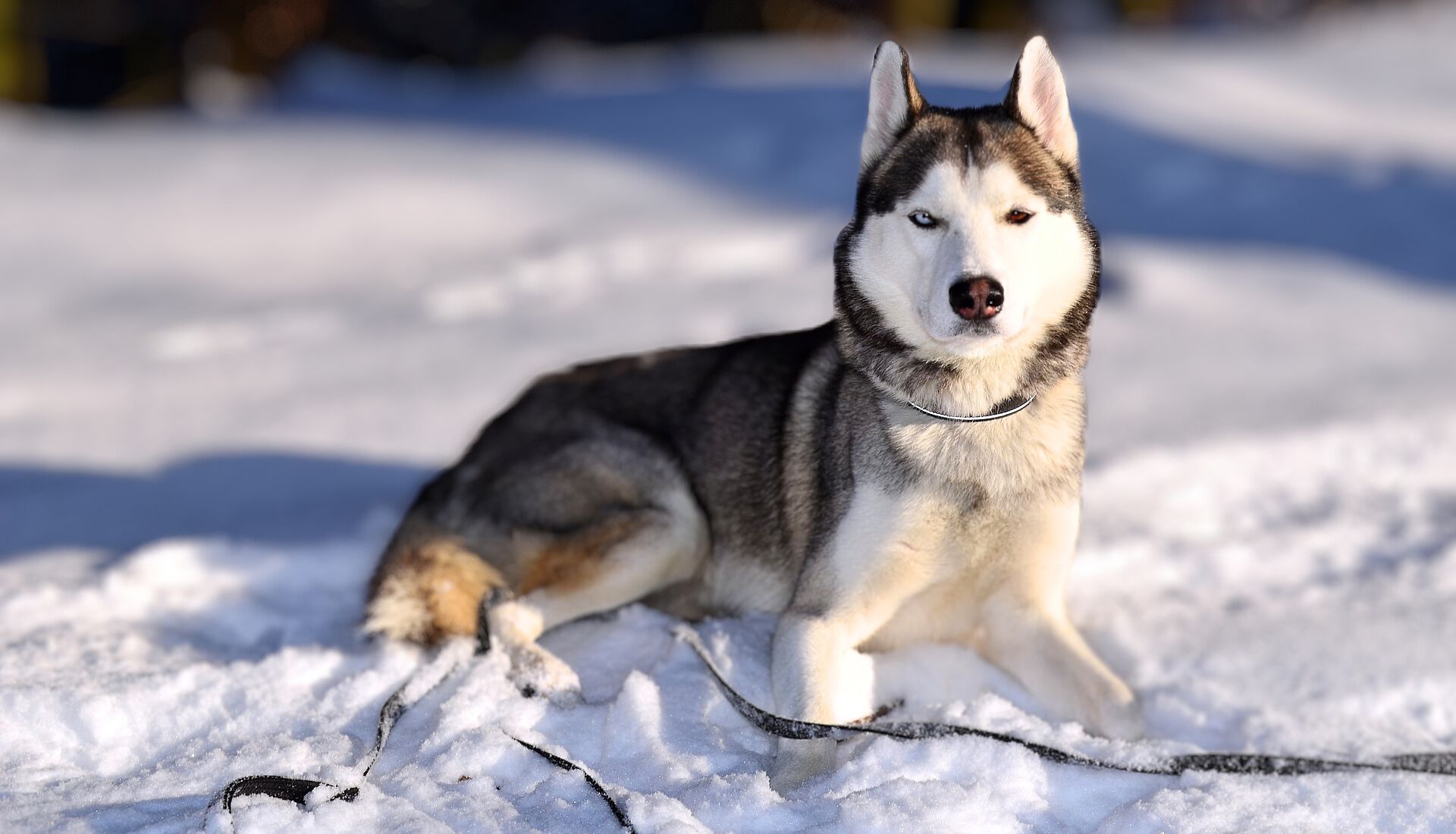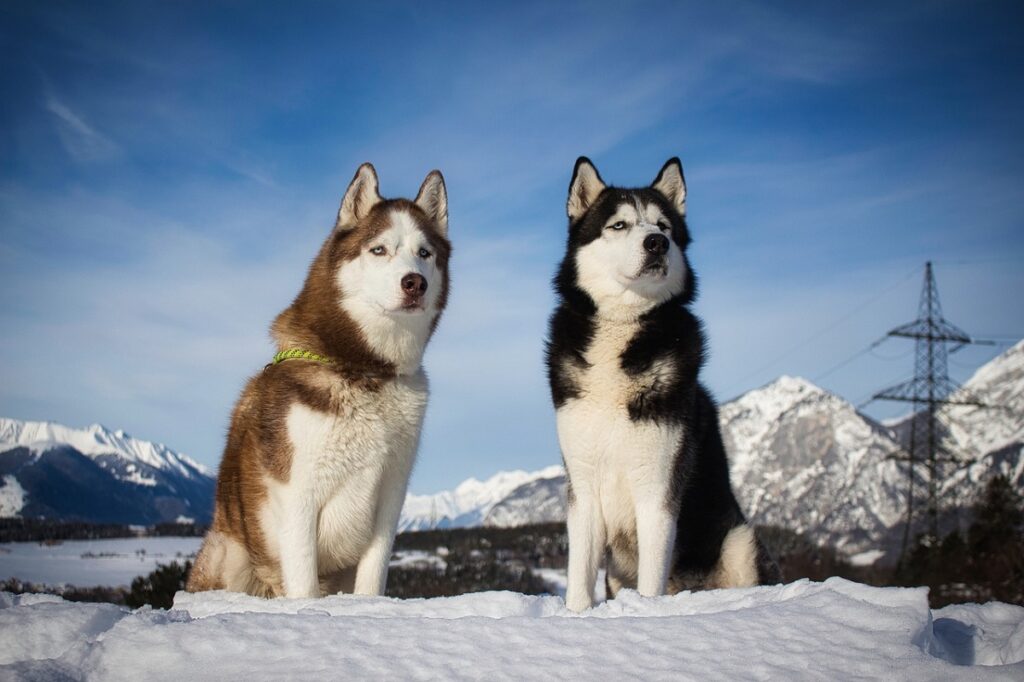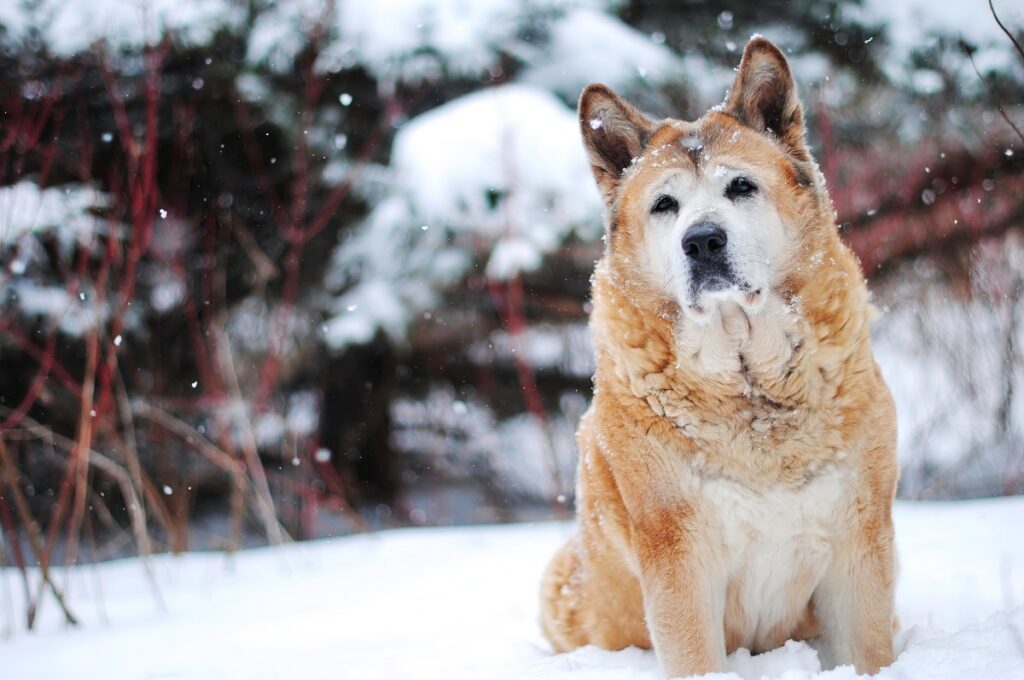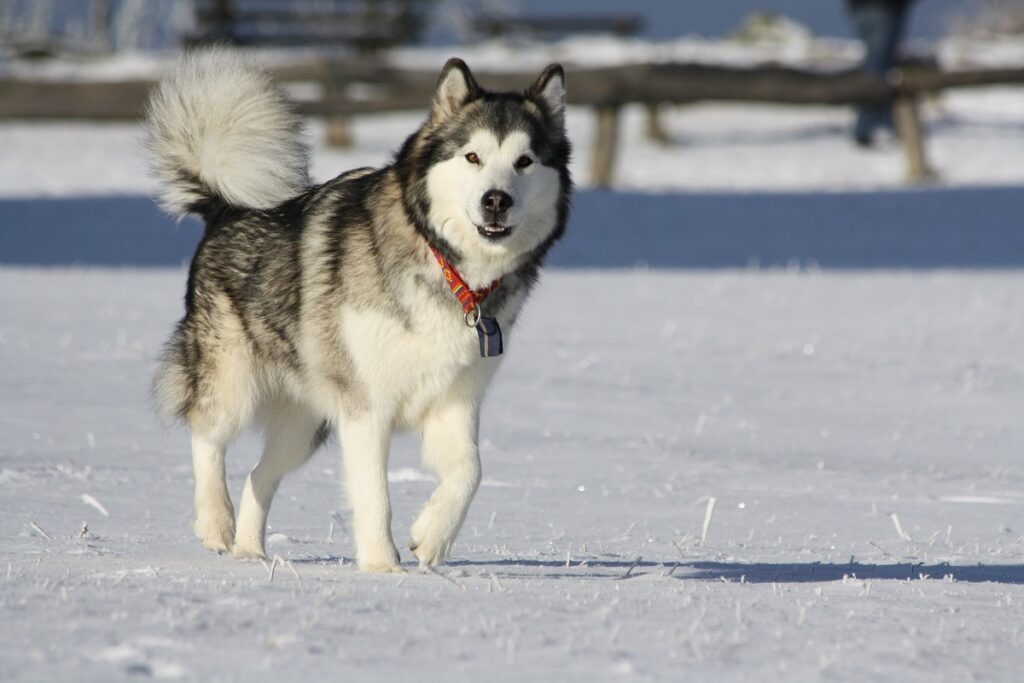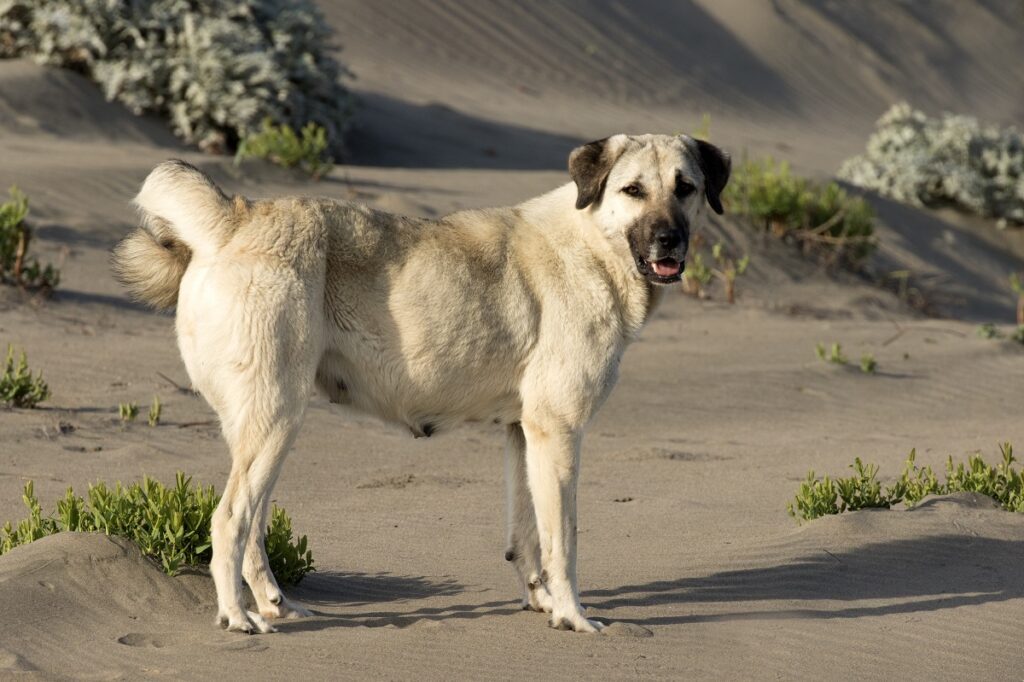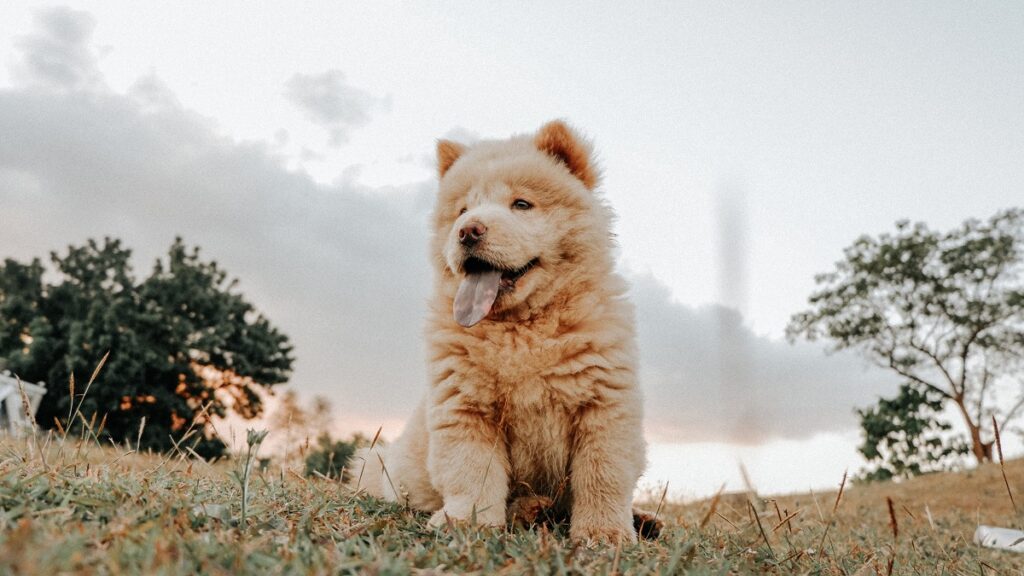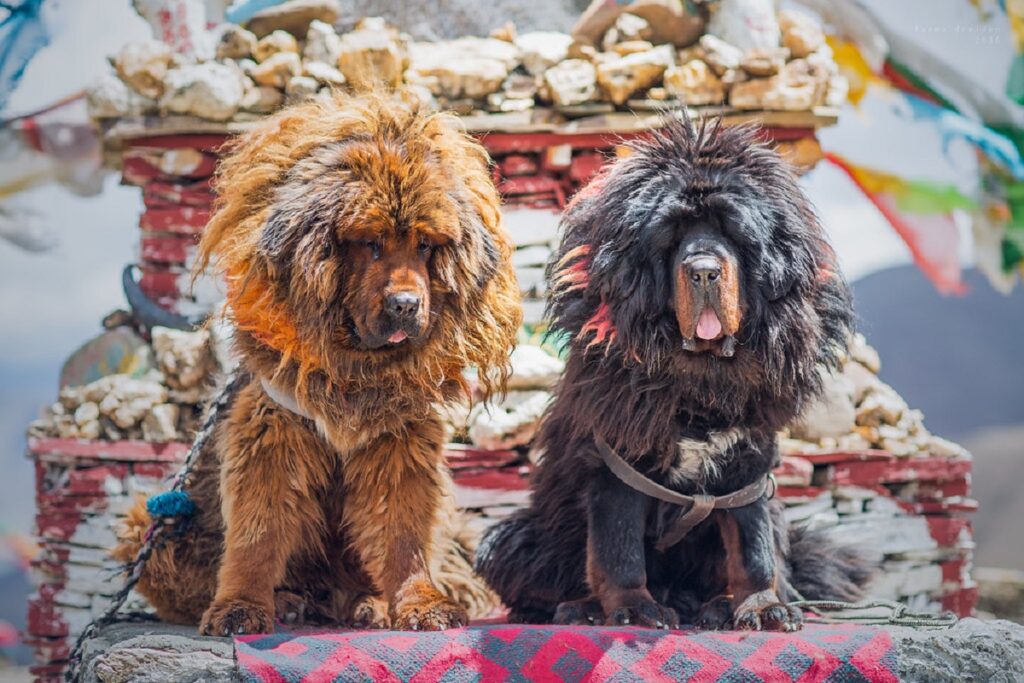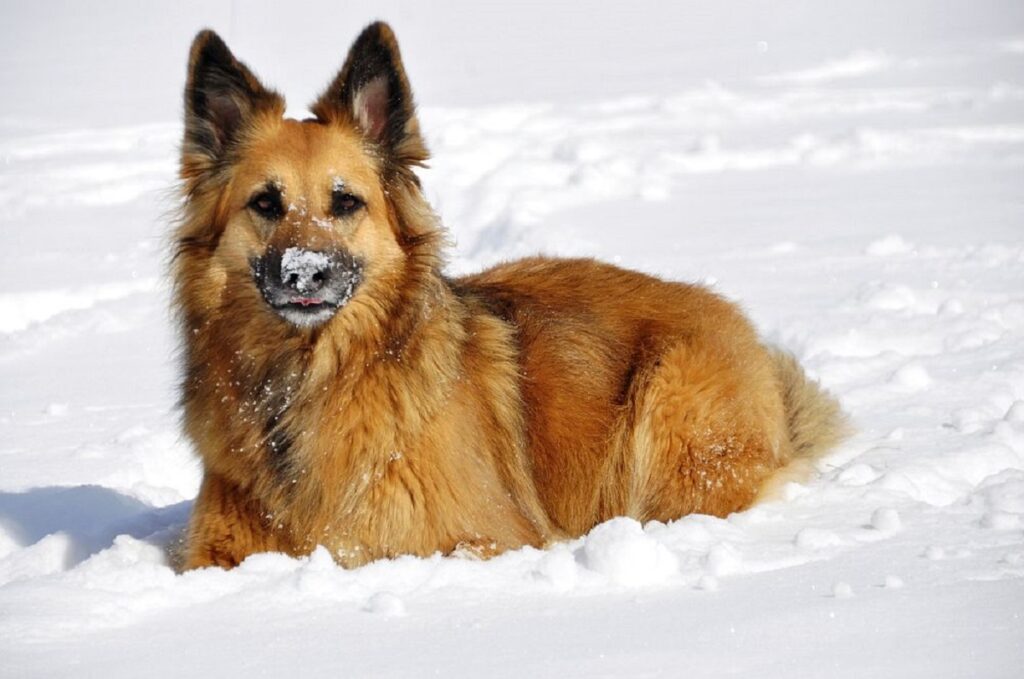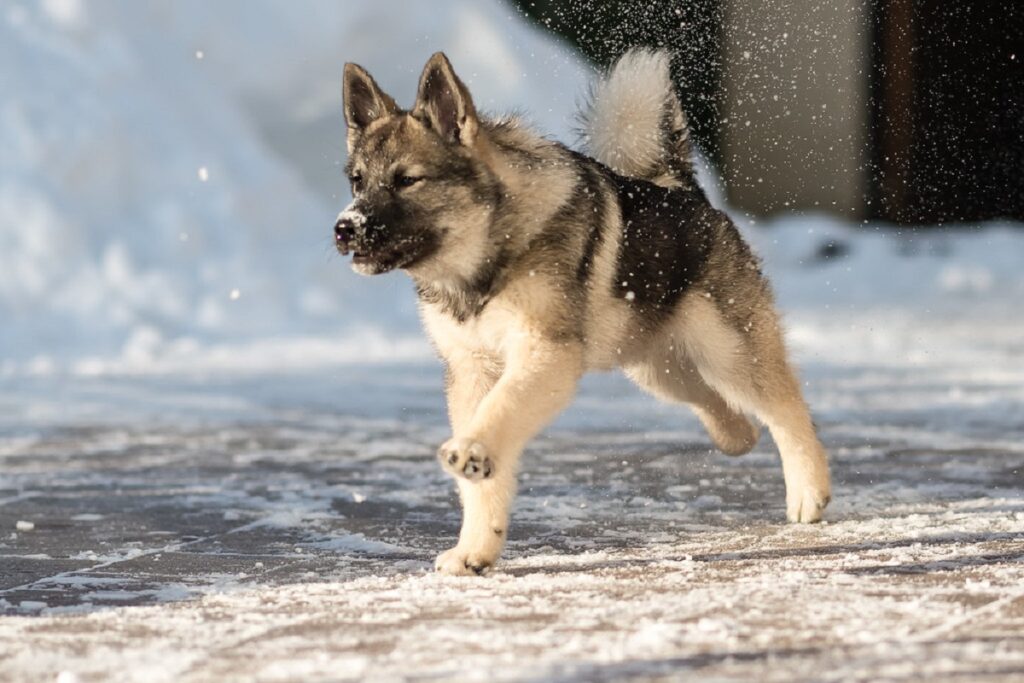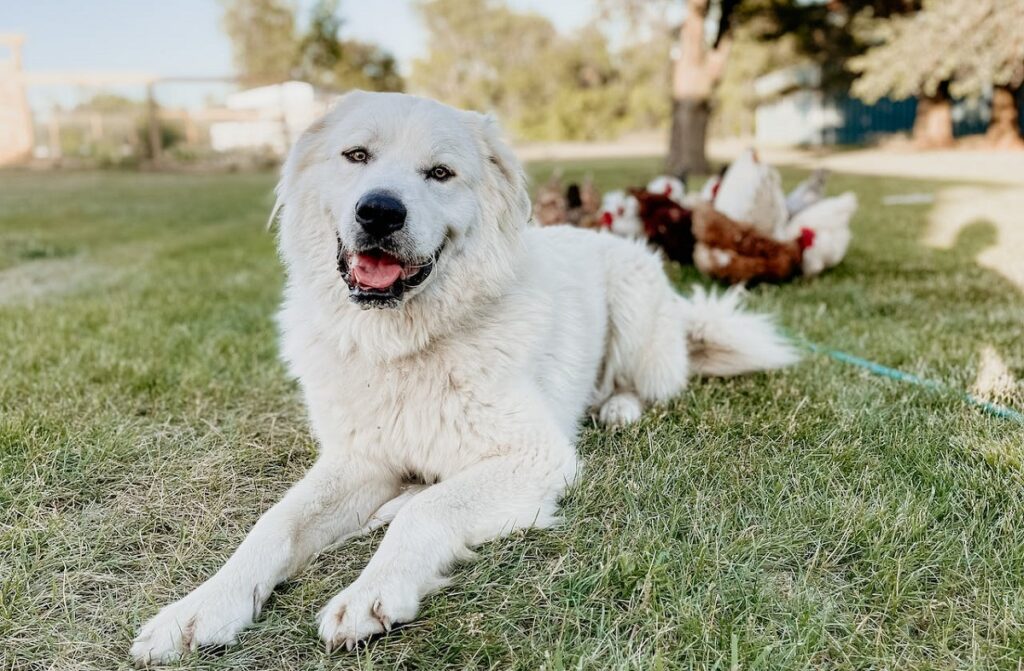Braving blizzards and sub-zero temperatures requires a special kind of companion – a cold-weather canine built for the task. Forget shivering chihuahuas, we’re talking thick coats, robust builds, and a love for the frosty air. Whether you need a powerful protector or a furry friend to join you on winter adventures, discover the top 9 dog breeds that thrive in the cold. From majestic mountain dogs to hardy northern breeds, this list will help you find the perfect winter watchdog to keep you safe and warm all season long.
Imagine a group of stunning Samoyeds pulling a sled across a snowy landscape – it’s the classic picture of a cold-weather dog breed. But if you’re considering a new furry family member, it’s crucial to think about your local climate. There’s a whole world of snow dog breeds that thrive in colder weather.
First, let’s dive into what makes a dog perfect for chilly climates and then explore some amazing cold-weather companions!
What Makes a Good Cold-Weather Dog?
Breeds suited for cold weather typically feature a dense, double-layered coat that offers superior insulation against frigid temperatures. Beyond this, these dogs possess distinct physical attributes tailored for winter conditions.
Their ears are often thicker, reducing the risk of frostbite, and they have broader paws designed for efficient navigation over icy or snowy terrain.
The lineage of these breeds is deeply rooted in colder regions, where they have evolved and adapted across generations. Cold weather dogs, with their thick double coats, are perfect for northern states like Alaska and Minnesota but may struggle in hot, humid climates like those in the southern states. It’s best to avoid these breeds in warmer areas.
Best Guard Dogs for Cold Weather
Discover the ultimate guardians of the frost: the best guard dogs for cold temperatures, perfectly adapted to protect and thrive in chilly climates.
1. Siberian Husky
The Siberian Husky, renowned for its striking beauty and intelligence, is a top choice for cold climates. These medium-sized dogs, weighing between 35 and 60 pounds, are not just playful but also possess remarkable strength and endurance, making them historically favored for sled pulling in icy terrains.
Known for their thick double coat, Huskies are well-equipped for cold weather, but they still need protection when temperatures drop below 20°F (-6°C). Despite their gentle and friendly nature, Huskies have a strong bite force, placing them among the top in terms of canine jaw strength.
With their high energy levels, Huskies are a bundle of joy and activity, requiring ample exercise. This means you might find yourself enjoying snowy adventures outdoors to channel their energy positively.
2. Akita
The Akita, a breed renowned for its ability to brave sub-freezing temperatures, is an ideal choice for cold weather. Originating from Japan‘s northern mountains, this spitz breed boasts a thick double coat, a bushy tail, fur-covered triangular ears, and large paws designed for trekking across snow and ice.
Cuddling up with an Akita is a delight, especially with their incredibly plush coat – perfect for cozy moments while watching winter activities.
Not only are Akitas attentive and intelligent, but their robust build also makes them formidable guard dogs. They tend to be wary of strangers and sometimes other pets, reflecting their deep-seated protective instinct. Above all, their loyalty and love for their families are profound, often translating into a strong, protective demeanor.
3. Alaskan Malamute
The Alaskan Malamute stands out as an excellent choice for cold climates, thanks to its Alaskan origins. As the oldest and largest of the Arctic sled dogs, they were bred for hauling freight in harsh Arctic conditions. Their thick coat is perfectly designed to provide warmth in extreme cold.
Characterized as a robust, heavy-duty worker of the spitz type, the Alaskan Malamute combines strength with a playful yet dignified personality. These affectionate and loyal dogs typically weigh between 75 and 85 pounds, and their high energy levels mean they need regular exercise and training to stay content.
One consideration for potential Malamute owners is their tendency to be less friendly towards cats. Other than this, they are undaunted by freezing temperatures, making them enthusiastic partners for walks and play, regardless of the weather.
4. Anatolian Shepherd
The Anatolian Shepherd thrives in cold weather, acclimated to endure temperatures as low as -40 degrees. These dogs are renowned for their extreme loyalty, extending even to smaller pets like cats in their family.
Known for being protective and territorial, Anatolian Shepherds also display intelligence and patience, making them unparalleled working guard dogs. These muscular canines can weigh up to 150 pounds and are more reserved in nature, often prioritizing protection over overt displays of affection.
Bred for millennia as guardians, Anatolian Shepherds have a natural inclination to bark, especially when they sense potential threats to their home or territory. Despite their ancient lineage, they generally have few health problems, although hip dysplasia can occur in the breed.
5. Chow Chow
Originating from ancient China, where they were valued as guardians and hunters, these dogs are easily recognizable by their lion-like mane and distinctive blue tongue. Weighing between 45 and 70 pounds, Chow Chows serve as excellent watchdogs and can be affectionate family pets, though they are prone to certain health issues like hip dysplasia and allergies.
Their protective nature stems from a history of working independently in guarding and herding, bred to make decisions autonomously. This translates into a deep loyalty to their families, often forming a special bond with one particular family member.
While they don’t bark excessively, Chow Chows will alert you if there’s a problem. Their loud bark and strong bite, combined with a territorial instinct, make them effective at protecting property. However, they are not overly active, so regular walks and playtime are essential to keep them healthy and engaged.
6. Tibetan Mastiff
Tibetan Mastiffs, once esteemed as hunting dogs in China’s imperial courts, are well-adapted to cold climates with their insulating double coat. These arctic breeds are not only friendly but also affectionate, making them excellent companions for families in colder regions.
Their historical role as guard dogs still influences their temperament today. Tibetan Mastiffs are known to be reserved, protective of their families, and cautious around strangers. They possess an independent, strong-willed nature and can be quite territorial.
Loving and devoted, Tibetan Mastiffs are fiercely protective, always ready to defend their families against any perceived threats. They are generally calm and watchful, but their protective instinct is strong. Their thick mane and abundant coat add to their imposing appearance, enhancing their presence as both a family member and a guardian.
7. German Shepherd
Originating from Germany, German Shepherds are medium to large-sized dogs renowned for their ability to thrive in cold weather, thanks to their dense, double-layered coat that provides excellent insulation.
This breed is not only adept at withstanding low temperatures but also possesses a calm and highly intelligent demeanor, making them well-suited for both outdoor environments and indoor living. German Shepherds are naturally protective, often serving as loyal guard dogs, and are celebrated for their strong protective instincts.
As working dogs, they weigh between 50 and 90 pounds and require an owner who can provide both sufficient exercise and mental stimulation. In return, they offer deep loyalty and affection. Prospective owners should be aware that the breed is susceptible to health issues like hip dysplasia and bloat.
Known for their intelligence, German Shepherds are ranked as the third smartest dog breed, a testament to their quick learning and problem-solving abilities.
8. Norwegian Elkhound
The Norwegian Elkhound, a hunting breed from Norway, is known for its energetic, fearless, smart, and loyal nature. As strong and reliable members of the hound group, they are distinguished by their exceptional tracking abilities.
Their thick, weather-resistant coat and robust build make them perfect for cold winter climates. These dogs are not only loyal and protective but also make excellent family pets, well-suited to endure even the harshest winter conditions.
While Norwegian Elkhounds are friendly and affectionate with their families, it’s important to note that their strong hunting instincts might lead them to view smaller pets as prey, potentially leading to aggressive behavior. Proper socialization and training are key to managing these instincts, especially in homes with other small animals.
9. Great Pyrenees
The Great Pyrenees, a breed dating back to 1800 B.C., has a long history as both herding dogs and livestock guardians. Known for their intelligence and patience, “Pyrs” typically weigh between 85 and 100 pounds and thrive in environments where they have ample space to roam.
Bred to guard flocks at night, these dogs have a nocturnal nature and are prone to barking in the evening hours, which can be beneficial for deterring unwanted visitors while you sleep. As guard dogs, they are particularly protective of children in their families, displaying a strong sense of guardianship.
Prospective owners should be aware of potential health concerns with this breed, including hip and elbow dysplasia, luxating patella, and susceptibility to certain cancers. Regular veterinary check-ups and a healthy lifestyle are essential for maintaining their well-being.
Cold Weather Guard Dogs Care Tips
- Adequate Shelter: Provide a warm, insulated shelter, especially during extreme cold or snowy conditions.
- Proper Nutrition: Increase calorie intake during colder months to compensate for energy used to stay warm.
- Grooming: Regularly brush their thick coats to prevent matting and maintain insulation.
- Hydration: Ensure constant access to unfrozen water to prevent dehydration.
- Exercise: Maintain regular exercise routines, but be mindful of extreme cold and adjust accordingly.
- Health Check-ups: Regular vet visits to monitor for breed-specific issues and cold weather-related health concerns.
- Winter Gear: Consider protective clothing like dog coats or booties in harsh weather.
- Safe Environment: Keep them away from antifreeze and other harmful substances often used in winter.
- Attention to Paws: Check and clean their paws after outdoor activities to remove ice, salt, and de-icers.
- Indoor Time: Allow ample time indoors during severe cold to prevent hypothermia or frostbite.
Conclusion
For those living in a cold climate, choosing the best snow dog breeds, like the American Eskimo Dog or the Bernese Mountain Dog, can provide not only a loyal companion but also an effective guardian.
These breeds are uniquely equipped to handle harsh winter conditions, blending their natural protective instincts with an innate ability to thrive in snowy environments. These breeds stand out as ideal choices for anyone seeking a reliable and affectionate guard dog suited for colder climates.
Ultimately, the best cold-weather guard dog isn’t solely defined by a thick coat. Temperament, trainability, and your specific needs play crucial roles. While breeds like Great Pyrenees and Tibetan Mastiffs thrive in freezing temperatures, a smaller, energetic breed like a Shiba Inu might be a better fit for some. Careful research, considering factors beyond cold tolerance, will ensure you find a loyal companion who can brave the elements and protect your home effectively. Remember to provide adequate shelter and adjust exercise based on the weather to ensure your canine guardian’s comfort and well-being.

